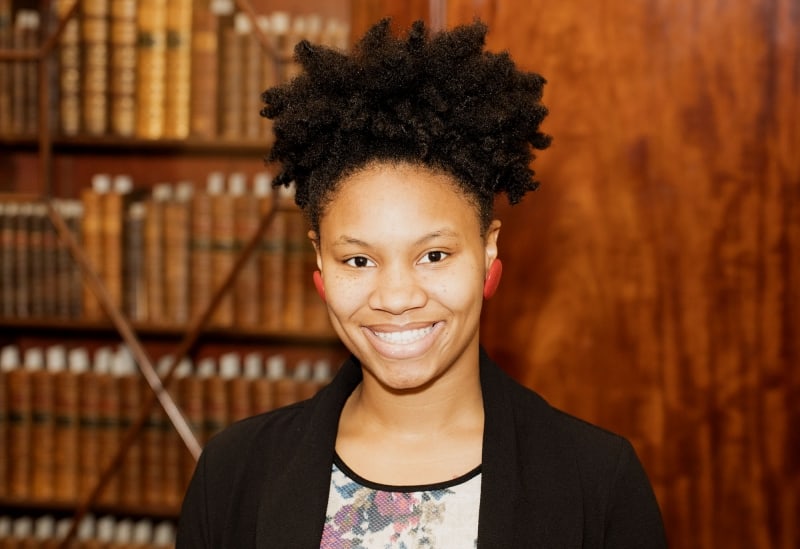Through the Eyes of Black Women: Intersectionality, Sexual Violence, and Reproductive Rights
Mellon Scholars Intern, MaDeja Leverett
My name is MaDeja Leverett and I’m a native of Ninety Six, South Carolina. I am an alumna of North Carolina Central University, where I received a BA in Political Science with a minor in Spanish. My interest in history heightened and evolved during my early years of undergraduate studies. Over the course of four years, I became extremely interested in Black women’s history and life experiences due to anti-Black racism and sexism. I realized that the history of enslaved Black women and girls was and still is neglected, and their stories were silenced.
I applied to the Mellon Scholars Internship Program because of the recommendation of Dr. Tony Frazier, my former history professor, who believed I would benefit from the program. After receiving his recommendation, I did my own research concerning the program and the history of The Library Company of Philadelphia. Based on the available resources at The Library Company, I knew this program would allow me to further my research interests and develop more skills needed to pursue graduate studies. I am honored to have the opportunity to access the collections here from the 17th through the 19th centuries.
After completing my internship, I will fulfill my year-long commitment as a City Year AmeriCorps member. By serving as a member, I will build strong, “near-peer” relationships with students and provide them with academic and social-emotional support. Once I am finished with City Year, I will apply to graduate programs to pursue a Ph.D. in history with a focus in Black studies and/or women and gender studies. My plan is to teach and educate students at the collegiate level. While at The Library Company, I have become quite interested in museum studies as well.
My independent research project examines the experiences of enslaved Black women and girls from the mid-1700s to the early 1870s. I focused on the intersections of race and gender; the rape and sexual violence of their bodies which led to the expectations of reproductive labor; and a culture of dissemblance because of the inhumane realities they were subjected to. By examining the narratives of several enslaved women that include a discussion of Black girlhood, I will analyze the real-life experiences of Black women and girls during enslavement and the major impact it had on their humanity.
I am so thankful for The Library Company of Philadelphia, Dr. Deirdre Cooper Owens, Jasmine Smith, and all the amazing staff for this research experience.
Mellon Scholars Intern
2019



